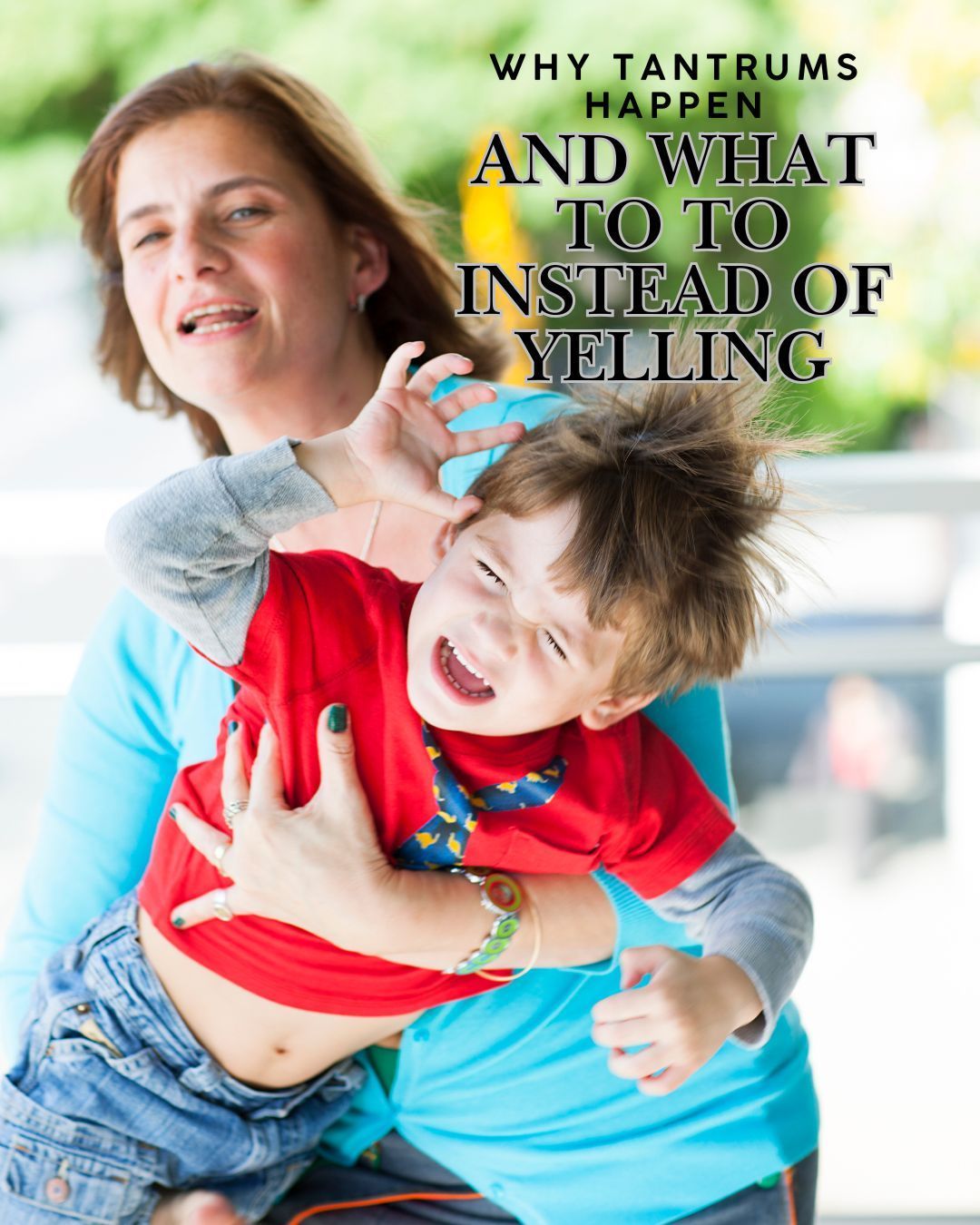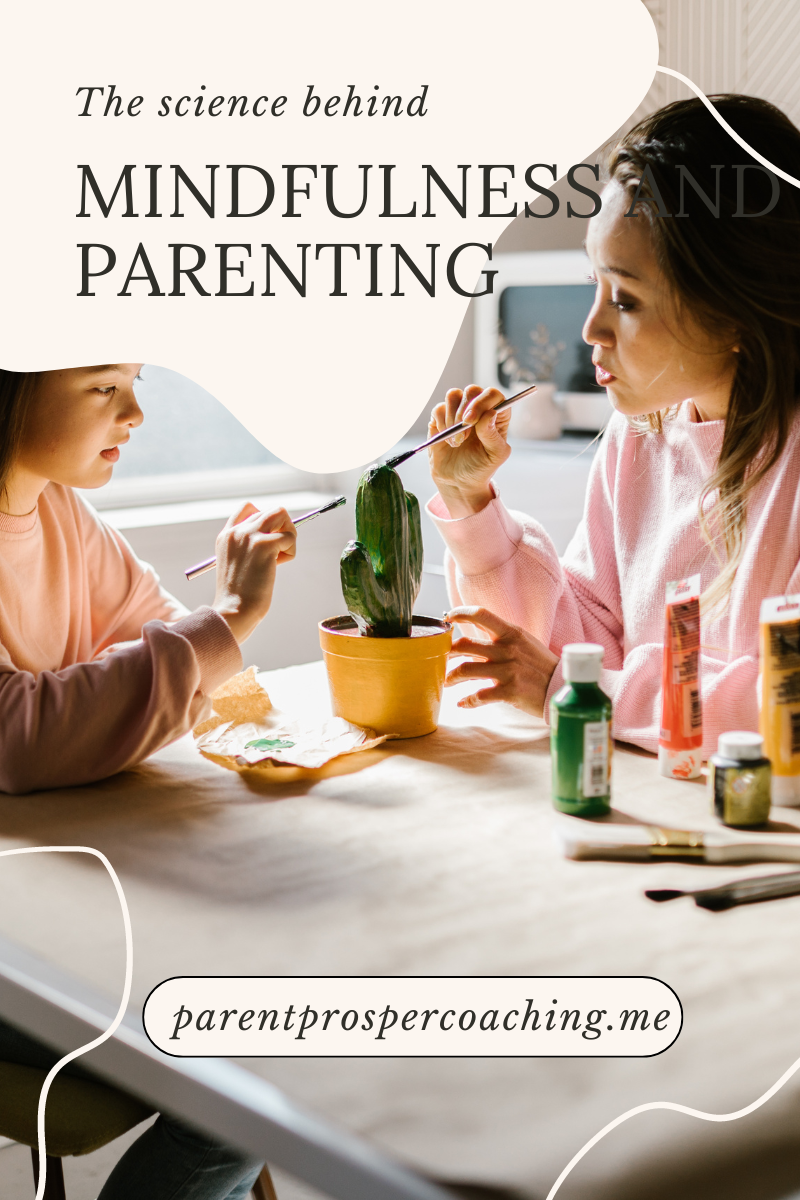Share
Why Tantrums Happen – And What to Do Instead of Yelling
Tantrums

Why Tantrums Happen – And What to Do Instead of Yelling
I think we’ve all been there, haven’t we? You’re in the middle of the supermarket. Your toddler spots the bright red cereal box you’ve already said no to. Or maybe you thought you had gotten away with by diverting their attention away from it! Within seconds, you’re juggling a screaming child, judgmental stares from strangers, and the rising urge to snap. Sound familiar?
If you’ve ever felt overwhelmed by these emotions and wondered, “Why can’t they just calm down?” - you’re not alone. Tantrums are one of the most common (and challenging) parts of parenting. But they’re not misbehaviour. They’re communication.
I know it might not seem like it in the moment, but you can respond differently — without yelling, shaming, or losing yourself in the chaos.
Why Tantrums Happen (According to Brain Science)
Tantrums aren’t a sign your child is manipulative, spoiled, or bad. I promise you aren’t raising a brat.
They’re a natural part of growing up. Young children are still developing their brain’s prefrontal cortex - the part responsible for reasoning, impulse control, and emotional regulation.
Until then, their limbic system (the emotional brain) often takes over. When they feel overwhelmed, their nervous system goes into fight, flight, or freeze. And for toddlers, that often looks like screaming, hitting, crying, or dropping to the floor.
As a parenting coach with a master’s degree in education and metacognition (how children think about thinking and learning), I’ve learned that tantrums aren’t logical problems to solve — they’re emotional storms to co-regulate through.
Why Yelling Doesn’t Work (And What It Teaches Instead)
When we yell in response to a tantrum, we’re doing something very human - reacting from our own stress response. Believe me everyone, I have been there, done that! Apart from it not really achieving the desired outcome, I used to feel extremely guilty once I was done shouting. And resentful that I had been “made” to shout! More on that another time….
But from a child’s perspective, yelling can feel frightening or confusing. It doesn’t help them learn how to calm down. Instead, it often:
- Increases fear or shame
- Shuts down communication
- Escalates the meltdown
Rather than teaching regulation, yelling teaches that emotions are unsafe — especially around the people they trust most. (That should be you, by the way!)
So What Can You Do Instead?
Here’s the part that changes everything: Your calm is more powerful than their chaos.
Here are five simple, conscious parenting tools to try during your child’s next meltdown:
1. Pause First
Take a breath. Even two seconds can interrupt your own reactive pattern. Put a hand on your heart or belly — a grounding touch calms your system.
2. Regulate Yourself First
You can’t co-regulate from a dysregulated state. Use simple tools like:
- Inhale for 4 counts, exhale for 6.
- Whisper instead of shout (it signals safety).
- Remind yourself: “They’re having a hard time, not giving me a hard time.”
And if you’re reading this and you’re thinking – “yes, but breathing doesn’t work for me” , then your job here is to find something that calms and regulates you , and start to practice it. Maybe its physical movement. Maybe it’s something cold on the back of your neck. But whatever it is, you need to be practising it regularly – not only in the big moments of chaos.
3. Name What They’re Feeling
Emotion coaching begins with naming:
“You’re so mad because you wanted the red cereal. That’s hard.”
This helps your child feel seen, which actually reduces the intensity of the tantrum.
4. Hold the Boundary with Compassion
You don’t need to give in — but you can stay connected.
“I won’t let you hit. I hear how upset you are. I’m here with you.”
Keep talking to a minimum. Their little brains are offline!
5. Model What Calm Looks Like
You are your child’s emotional mirror. When they see you breathe, soften your voice, or sit beside them quietly, they learn how to do it too.
Real-Life Script: Try Saying This
When your child is in the middle of a tantrum, try this 4-line response:
“I see how upset you are.
I won’t let you hurt anyone.
Let’s breathe together.
I’m right here.”
You Don’t Have to Be Perfect — Just Present
I’ve worked with so many parents who worry that if they’ve yelled in the past, they’ve ruined the connection. That couldn’t be further from the truth.
Parenting is not about perfection. It’s about repair, awareness, and the courage to pause. Every tantrum is a moment to build trust — not control.
I know this deeply, not just from my coaching work, but from my own journey as a mum of two. I’ve raised my voice. I’ve made mistakes. I’ll never be that “perfect” mum. And I’ve learned that the most powerful change begins with one thing: presence.
Want More Support?
If you’re ready to feel calmer and more confident when your child has big emotions, I’d love to help.
👉
Book a free
discovery call
You don’t have to do this alone. You already have everything you need — I’m just here to help you see it.








